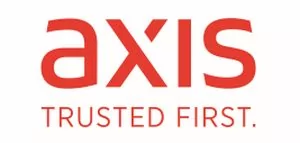1.0 INTRODUCTION
The Financial Services Commission, Mauritius (the "FSC") is established under the Financial Services Act 2007 (the "FSA") and is mandated to regulate the non-bank financial services sector and global business.
The FSA requires the FSC to assess the "fitness and propriety" of an applicant and any holder of a licence (natural person or corporation), including any person authorised, registered or approved under a relevant Act.
Applicants who are granted a licence are expected to remain "fit and proper" at all times and any change in circumstances which can affect the "fitness and propriety" of the licensee must promptly be notified to the FSC.
Regulated entities are required to reflect the elements of these Guidelines in their internal policies, procedures and controls and apply them in their assessment of persons who manage, control, direct, own or perform key functions in a regulated entity.
Terms used in these Guidelines shall, unless otherwise specified, have the same meaning as under the relevant Acts.
2.0 PURPOSE OF THESE GUIDELINES
These Guidelines are issued by the FSC pursuant to its powers under section 7(1)(a) of the FSA. It supersedes the Guide on Fitness and Propriety previously issued by the FSC on 9 June 2020 but does not intend to replace or override any legislation or case law on the matter, whether in Mauritius1 or abroad2 . Its provisions should be read in conjunction with the provisions of relevant legislations and/or directions which may be issued by the FSC from time to time.
The Guidelines aim at clarifying the criteria to be taken into consideration by the FSC in assessing the "fitness and propriety" of an applicant/licensee.
The concept of "fit and proper" is an open-ended one and is aimed at ensuring sound conduct of business in the financial services sector. As such, these Guidelines are not exhaustive and each case shall be considered on the basis of its own merits.
3.0 SCOPE OF APPLICATION
These Guidelines are applicable to the following:
- all the shareholders of the applicant/licensee;
- any beneficial owner of the applicant/licensee;
- any controller of the applicant/licensee;
- any director of the applicant/licensee;
- any officer of the applicant/licensee;
- any incumbent officer such as the Money Laundering Reporting Officer, the Deputy Money Laundering Reporting Officer and the Compliance Officer;
- any representative or agents of the applicant/licensee;
- trustees and management committees of occupational pension plans;
- external and outsourced auditors of regulated entities;
- the principal representative of a foreign financial institution that is conducting
- insurance business or business of a financial nature;
- an insurance agent, broker and sales representative and any such person as may be determined by the FSC.
The above list is not-exhaustive.
4.0 THE FIT AND PROPER TEST
Pursuant to section 20 of the FSA, in considering whether a person is "fit and proper", the FSC may have regard to the following, but not limited to same:
- in relation to the person and, where the person is a
corporation, the officers and beneficial owners of the corporation
–
- financial standing;
- relevant education, qualifications and experience;
- ability to perform the relevant functions properly, efficiently, honestly and fairly; and
- reputation, character, financial integrity and reliability;
- any matter relating to –
- any person who is or is to be employed by, or associated with, the person;
- any agent or representative of the person;
- where the person is a corporation, the officers and any shareholder of the corporation, the related corporations of the corporation and the officers of those related corporations; and
- any matter specified in a relevant Act as relating to the "fit and proper" person requirement.
Footnotes
1 Rookny Kaviraj vs The Financial Services Review Panel [2018 SCJ 250] (infra)
2 Financial Conduct Authority (formerly the Financial Services Authority) vs Hobbs [2013 EWCA CIV 918]
To read the full article click here
The content of this article is intended to provide a general guide to the subject matter. Specialist advice should be sought about your specific circumstances.

